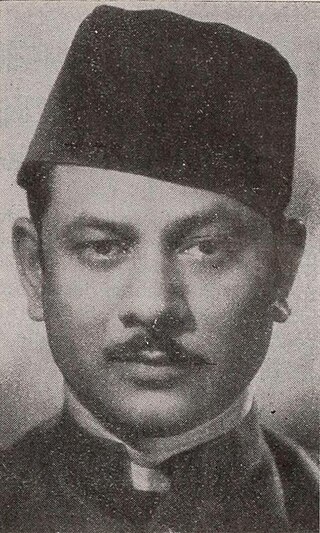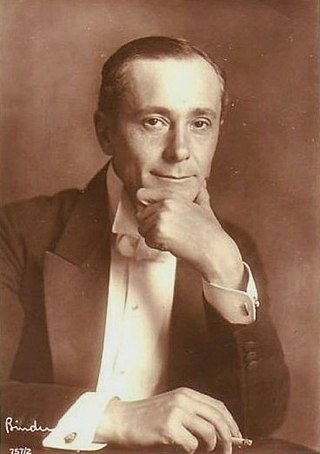Related Research Articles

The cinema of France comprises the film industry and its film productions, whether made within the nation of France or by French film production companies abroad. It is the oldest and largest precursor of national cinemas in Europe, with primary influence also on the creation of national cinemas in Asia.

The Motion Picture Patents Company, founded in December 1908 and effectively terminated in 1915 after it lost a federal antitrust suit, was a trust of all the major US film companies and local foreign-branches, the leading film distributor and the biggest supplier of raw film stock, Eastman Kodak. The MPPC ended the domination of foreign films on US screens, standardized the manner in which films were distributed and exhibited within the US, and improved the quality of US motion pictures by internal competition. It also discouraged its members' entry into feature film production, and the use of outside financing, both to its members' eventual detriment.

The Gaumont Film Company, often shortened to Gaumont, is a French film production and distribution company headquartered in Neuilly-sur-Seine, France. Founded by the engineer-turned-inventor Léon Gaumont (1864–1946) in 1895, it is the oldest extant film company in the world, established before other studios such as Pathé, Titanus (1904), Nordisk Film (1906), Universal, Paramount, and Nikkatsu.

The cinema of the United States, consisting mainly of major film studios, along with some independent films, has had a large effect on the global film industry since the early 20th century.

Swedish cinema is known for including many acclaimed films; during the 20th century the industry was the most prominent of Scandinavia. This is largely due to the popularity and prominence of directors Victor Sjöström and especially Ingmar Bergman; and more recently Roy Andersson, Lasse Hallström, Lukas Moodysson and Ruben Östlund.
The film industry or motion picture industry comprises the technological and commercial institutions of filmmaking, i.e., film production companies, film studios, cinematography, animation, film production, screenwriting, pre-production, post-production, film festivals, distribution, and actors. Though the expense involved in making film almost immediately led film production to concentrate under the auspices of standing production companies, advances in affordable filmmaking equipment, as well as an expansion of opportunities to acquire investment capital from outside the film industry itself, have allowed independent film production to evolve.

Mehboob Khan was a pioneer producer-director of Indian cinema, best known for directing the social epic Mother India (1957), which won the Filmfare Awards for Best Film and Best Director, two National Film Awards, and was a nominee for the Academy Award for Best Foreign Language Film. He set up his production company – Mehboob Productions, and later a film studio – Mehboob Studios in Bandra, Mumbai in 1954. He also created the dacoit film genre with Aurat (1940) and Mother India, and is also known for other blockbusters including the romantic drama Andaz (1949), the swashbuckling musical Aan (1951), and the melodrama Amar (1954).

Embassy Pictures Corporation was an American independent film production and distribution studio, active from 1942 to 1986. Embassy was responsible for films such as The Graduate, The Producers, The Fog, The Howling, Escape from New York, and This Is Spinal Tap, Swamp Thing, and television series such as The Jeffersons, One Day at a Time and The Facts of Life.

Pathé is a French major film production and distribution company, owning a number of cinema chains through its subsidiary Pathé Cinémas and television networks across Europe.

Bell and Howell is a United States brand of cameras, lenses, and motion picture machinery. It was originally founded as a company in 1907, and headquartered in Wheeling, Illinois. The company was acquired by Böwe Systec in 2003. Since 2010, the brand name has been licensed for a variety of consumer electronics products.

The automotive industry in Italy is a quite large employer in the country, it had over 2,131 firms and employed almost 250,000 people in 2006. Italy's automotive industry is best known for its automobile designs and small city cars, sports and supercars. The automotive industry makes a contribution of 8.5% to Italian GDP.

Cinema of Europe refers to the film industries and films produced in the continent of Europe.
Midaq Alley is a 1995 Mexican film adapted from the novel by Egyptian writer Naguib Mahfouz, written by Vicente Leñero and directed by Jorge Fons. The film deals with complex issues such as gay and lesbian related topics, the lower-middle class of Mexico City, and the lives of many people.

The Finnish cinema has a long history, with the first public screenings starting almost as early as modern motion picture technology was invented. It took over a decade before the first Finnish film was produced and screened in 1907. After these first steps of Finnish cinema, the progress was very slow. After 1907 there were two periods when no Finnish films were produced. This was partly caused by the political situation, as Finland held a status as an autonomous part of the Russian Empire and was thus influenced by the worldwide political situation.

A co-production is a joint venture between two or more different production companies for the purpose of film production, television production, video game development, and so on. In the case of an international co-production, production companies from different countries are working together.

Cinema of Austria refers to the film industry based in Austria. Austria has had an active cinema industry since the early 20th century when it was the Austro-Hungarian Empire, and that has continued to the present day. Producer Sascha Kolowrat-Krakowsky, producer-director-writer Luise Kolm and the Austro-Hungarian directors Michael Curtiz and Alexander Korda were among the pioneers of early Austrian cinema. Several Austrian directors pursued careers in Weimar Germany and later in the United States, among them Fritz Lang, G. W. Pabst, Josef von Sternberg, Billy Wilder, Fred Zinnemann, and Otto Preminger.
Canadian science fiction television was produced by the CBC as early as the 1950s. In the 1970s, CTV produced The Starlost. In the 1980s, Canadian animation studios including Nelvana, began producing a growing proportion of the world market in animation.

Alfred Peter Abel was a German film actor, director, and producer. He appeared in more than 140 silent and sound films between 1913 and 1938. His best-known performance was as Joh Fredersen in Fritz Lang's 1927 film Metropolis.
Richard Abel is Professor Emeritus of International Film and Media in the Department of Film, Television, and Media at the University of Michigan. He is a specialist in the history of early cinema and pioneered the academic study of French silent cinema in the United States. Abel has authored numerous books and articles on a wide variety of topics including the rise and eclipse of French cinema, the early history of the U.S. cinema industry, early film exhibition, the emergence of film culture, the contributions of early women writers and critics, and, more recently, the role of early westerns in re-enacting settler colonialism.

Hollywood on the Tiber is a phrase used in a June 26,1950 Time magazine article to describe the period in the 1950s and 1960s when the Italian capital of Rome emerged as a major location for international filmmaking attracting many foreign productions to the Cinecittà studios. By contrast to the native Italian film industry, these movies were made in English for global release. Although the market for many of these films was primarily American, they enjoyed widespread popularity in other countries, including Italy.
References
- ↑ Abel p.31
